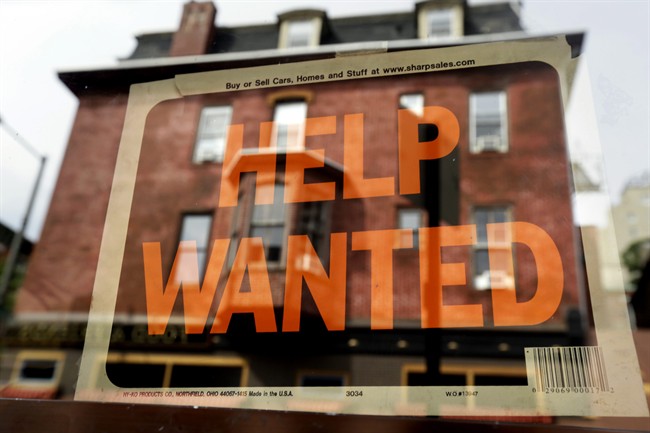If you’ve been out for a walk in Vancouver lately, you’ve no doubt seen the “help wanted” signs dotting businesses around the city.

The shortage of labour has hit the service and hospitality industries particularly hard, with some businesses saying they’ve been forced to close due to staffing shortages.
It’s an issue that many have pinned on the city’s high cost of housing.
Among them is Frank O’Brien, the editor of Western Investor, who joined CKNW’s The Jon McComb Show to explain why that worries him.
LISTEN: What will happen to Vancouver if no one can afford to work there?
Along with the “help wanted” signs, Vancouver has also seen a string of “why I’m leaving Vancouver” editorials penned in recent months, as families and workers declare they simply can’t afford to live in the city any more.
It’s an alarming trend for a city O’Brien said is the most prosperous in B.C. and has Canada’s lowest unemployment rate.
“Nothing seems to make sense in a city where you can’t afford to live for $20 an hour. Even $25 an hour doesn’t cut it in this city,” he said.
“We’re seeing an exodus from the city, and I think it will continue unless some really radical changes are done to bring the cost of housing down for the average person.”
Even Vancouver’s building boom and its corresponding construction jobs are at risk, O’Brien suggested, noting that the average construction worker pulls down about $54,000 a year.

Get breaking National news
WATCH: Critical labour shortage for Metro Vancouver businesses

That kind of wage presents challenges for renters in the Vancouver region, O’Brien said, never mind would-be homeowners.
In fact, the 2016 Census found that 43 per cent of Metro Vancouver’s renters and 32 per cent of all households in the region were spending more than a third of their income on housing.
The Canada Mortgage and Housing Corporation (CMHC) defines housing as “affordable” if it comes in at under one-third.
- B.C. judge rules plaintiffs did not do enough to identify hit-and-run driver
- 16-year-old international student dies after North Vancouver collision
- B.C. customers find packages discarded like ‘garbage’ when they are marked as delivered
- B.C. family outraged at man with Stage-4 cancer’s 14-hour ER wait, discharge
O’Brien also warned of risks to the city’s “social fabric,” making a connection between the region’s homeless crisis and its housing woes.
Dozens of homeless camps have sprung up around the region, and the latest Metro Vancouver homeless count found at least 3,600 people living on the streets.
Metro Vancouver figures show that about one in five of the region’s homeless are employed part or full time.
“I heard a comment recently that the homeless people in Vancouver, as the winter rains set in in Vancouver, if they’re seeking shelter they can wrap themselves in the help wanted signs that are plastered all over the city,” O’Brien said.
From O’Brien’s perspective, there is no easy fix.
For the restaurant and construction industry, he said, the answer has been to increasingly look at immigrants who are viewed as more stable, committed long-term workers than millennials.
And those same immigrants, he added, are more likely to tolerate cramped housing conditions, in comparison to the some 30 per cent of locals he said are living on their own.
“Immigrants are, and I’m speaking generally here, are more likely to have four, five, six people living in what most Canadians would consider fairly cramped quarters,” O’Brien said.
“But they’re willing to make that sacrifice because they want to get into Canada.”
WATCH: Labour shortage hurting North Shore restaurants

But politically, O’Brien said, the kinds of decisions that could help bring housing costs back in line with incomes will be painful.
He points to B.C.’s Agricultural Land Reserve (ALR), which he said the province could use to build affordable housing as one option that would get results, but likely cost the government that did it dearly at the ballot box.
Alternately, he said, developers and landlords could agree to take a financial “haircut” by focusing on building housing options that are most needed, rather than the most profitable.











Comments